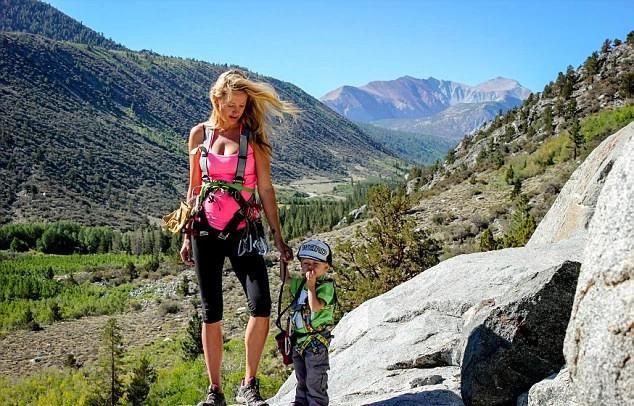
作文一:《初中英语作文-徒步旅行-Travel on Foot》1400字
学习辅助网 .5730.net
我喜欢在假期跟哥哥一起徒步旅行。刚开始的时候,我还真有点吃不消,没走多远就累得
上气不接下气。于是哥哥就给我讲动听的故事。他一边讲我们一边走,不知不觉走了很远。
哥哥问我:“你还累吗?”呵呵,我早把“累”这回事忘到九霄云外去了。
Travel on Foot
I like traveling on foot With my brother in holidays. At the very beginning, I felt very tired. I got out of breath so easily. Then my brother started to tell me some interesting stories. We walked and walked while he didn't stop telling stories. We walked a long way without knowing. Then my brother asked me, "Are you still feeling tired?" The feelings of tiredness were already out of my mind.
学习辅助网 .5730.net 学习路上必备的交流学习网站
莘莘学子必备的交流网站----学习辅助网 .5730.net
作文二:《英语六级作文2900字:徒步旅行(trekking trip)》3100字
精品文档
英语六级作文2900字:徒步旅行(Trekking trip)
the past ages of man have all ben carefully labeled by anthropologists. descriptions like ‘palaeolithic
man’, ‘neolithic man’, etc., neatly sum up whole
periods. when the time es for anthropologists to turn their attention to the ttieth century, they will surely choose the label ‘legless man’. histories
of the time will go something like this: ‘in the
ttieth century, people forgot how to use their legs. men and women moved about in cars, buses and trains from a very early age. there were lifts and escalators in all large buildings to prevent people from walking. this situation was forced upon earth-dwellers of that time because of their etraordinary way of life. in those days, people thought nothing of traveling hundreds of miles each day. but the surprising thing is that they didn’t use their legs even when they t on holiday. they built cable railways, ski-lifts and roads to the top of every huge mountain. all the beauty spots on earth were marred by the presence of large car parks.’
the future history books might also record that we were deprived of the use of our eyes. in our hurry to
1 / 3
精品文档
get from one place to another, we failed to see anything on the way. air travel gives you a bird’s-eye view of
the world- or even less if the wing of the aircraft happens to get in your way. when you travel by car or train a blurred image of the countryside constantly smears with the urge to go on and on: they never want to stop. it is the lure of the great motorways, or what? and as for sea travel, it hardly deserves mention. it is perfectly summed up in the words of the old song: ‘i joined the navy to see the world, and what did i see? i saw the sea.’ the typical ttieth-century
traveler is the man who always say ‘i’ve been there,’
you mention the remotest, most evocative place-names in the world like el dorado, kabul, irkutsk and someone is bound to say ‘i’ve been there’—meaning, ‘i drove
through it at 100 miles an hour on the way to somewhere else.’
when you travel at high speeds, the present means nothing: you live mainly in the future because you spend most of your time looking forward to arriving at some other place. but actual arrival, when it is achieved, is meaningless. you want to move on again. by traveling
2 / 3
精品文档
like this, you suspend all eperience; the present ceases to be a reality: you might just as well be dead. the traveler on foot, on the other hand, lives constantly in the present. for him traveling and arrving are one and the same thing: he arrives somewhere with every step he makes. he eperiences the present moment with his eyes, his ears and the whole of his body. at the end of his journey he feels a delicious physical weariness. he knows that sound, satisfying sleep will be his: the just reward of all true travelers.
3 / 3
作文三:《英语六级作文2900字:徒步旅行(Trekking trip)》2800字
英语六级作文2900字:徒步旅行
(Trekking trip)
英语六级作文2900字:徒步旅行the past ages of man
have all ben carefully labeled by anthropologists. descriptions like ‘palaeolithic man’, ‘neolithic man’, etc., neatly sum up whole
periods. when the time es for anthropologists to turn their attention to the ttieth century, they will surely choose the label ‘legless man’. histories of the time will go something like this: ‘in
the ttieth century, people forgot how to use their legs. men and women moved about in cars, buses and trains from a very early age. there were lifts and escalators in all large buildings to prevent people from walking. this situation was forced upon earth-dwellers of that time because of their etraordinary way of life. in those days, people thought nothing of traveling hundreds of miles each day. but the surprising thing is that they didn’t use their legs even when
they t on holiday. they built cable railways, ski-lifts and roads to the top of every huge mountain. all the beauty spots on earth were marred by the presence of large car parks.’the future history books
might also record that we were deprived of the use of our eyes. in our hurry to get from one place to another, we failed to see anything on the way. air travel gives you a bird&r
squo;s-eye view of the world- or even less if the wing of the aircraft happens to get in your way. when you travel by car or train a blurred image of the countryside constantly smears with the urge to go on and on: they never want to stop. it is the lure of the great motorways, or what? and as for sea travel, it hardly deserves mention. it is perfectly summed up in the words of the old song: ‘i
joined the navy to see the world, and what did i see? i saw the sea.’
the typical ttieth-century traveler is the man who always say ‘i’ve been there,’ you mention the remotest, most evocative
place-names in the world like el dorado, kabul, irkutsk and someone is bound to say ‘i’ve been there’—meaning, ‘i drove through
it at 100 miles an hour on the way to somewhere else.’when you
travel at high speeds, the present means nothing: you live mainly in the future because you spend most of your time looking forward to arriving at some other place. but actual arrival, when it is achieved, is meaningless. you want to move on again. by traveling like this, you suspend all eperience; the present ceases to be a reality: you might just as well be dead. the traveler on foot, on the other hand, lives constantly in the present. for him
traveling and arrving are one and the same thing: he arrives somewhere with every step he makes. he eperiences the present moment with his eyes, his ears and the whole of his body. at the
end of his journey he feels a delicious physical weariness. he knows
that sound, satisfying sleep will be his: the just reward of all true
travelers
作文四:《小学六年级英语阅读理解:徒步旅行》900字
【导语】英语的学习注重的是同学们平时的日积月累,大量的英语阅读是十分有利的,所以英语网小编为同学们整理了一系列的英语阅读理解题,每篇文章都是一份很好的阅读素材,对大家提高阅读水平很有帮助呢~
阅读理解(四)
Jill and Kate are going hiking (徒步旅行) with their class tomorrow . They t to take some fruits with them . Jill likes oranges and Kate likes apples . When they get to the market , they can’t find any oranges , and the apples are too green . “What are we going to buy now ?” asks Kate “Hey ,what’s that big round fruit over there ?” asks Jill .”I don’t know .Let’s ask the sales-girl .” “What do you call this ? ” “Youzi ,”answers the girl . “Why don’t we buy one ?”asks Jill “OK. We ’re going to have lots of fun hiking and eating a new kind of fruit ! ”says Kate .
根据短文内容,判断正(T)误(F)。
( ) 1. Kate is going hiking this afternoon .
( ) 2. Jill like apples and Kate like oranges .
( ) 3. They don’t buy apples because the apples are too green .
( ) 4. Youzi is a big round fruit .
( ) 5. They’re going to eat a new kind of fruit tomorrow .
答案请看下一页
作文五:《【精品】商务英语:Hiking徒步旅行》1200字
商务英语,Hiking徒步旅行
[真诚为您服务]
1. My feet are soreu from hiking.
我的脚走疼了。
2. We can rest at the top of this hill.
我们可以在山顶休息。
3. I like hiking in real wildernessv.
我喜欢在真正的野外徒步旅行。
4. Hiking is not yet popular in China.
徒步旅行在中国还不流行。
5. The trailw splits into two trails.
这条小路一分为二。
6. The rest of the way is downhill.
剩下的路都是下坡路。
7. Be careful of the slippery rocks.
小心,岩石很滑。
8. Is your pack fortable?
你的包背起来舒服吗,
9. I hate people who litter in the forest.
我讨厌那些在森林里乱扔垃圾的人。
10. Too much noise scares the animals away.
太多的噪音把动物都吓跑了。
11. How much farther do we have to go?
我们还要走多远,
12. It seems like we’re been walking forever.
我们好像永远也走不完。
13. Sorry, I didn’t realize you were getting so tired.
对不起,我没注意到你已经这么累了。
14. This view is absolutely breathtaking. Don’t you
agree?
这里的风景简直是太美了。你不觉得吗,
15. It’s a feeling of satisfaction that we are getting
so much exercise and clean air, and see so many magnificent
sights.
我们得到了这么多的锻炼,呼吸了新鲜的空气,还看到了这么美的景色,这真是一种满足感。
【生词解读】
1. sore [sC:] a. 痛的;疼痛发炎的
2. wilderness [5wildEnis] n. 荒野,荒漠;无人烟处
3. trail [treil] n. 小径,小路
4. downhill [5daJn5hIl] a. 下坡的
5. slippery [5slipEri] a. 滑的;容易滑的
6. litter [5litE] vi. 乱扔废弃物
7. breathtaking [5breW7teikiN] a. 惊人的
作文六:《作文:一次有意义的徒步旅行》600字
一次有意义的徒步旅行
我们育才小学要举行徒步旅行实践活动了!一听到这消息,我们班都乐开了锅,大家都七嘴八舌地议论着,好期待这次活动的举行啊!还好,活动决定在次日进行!
一大早,我就迫不及待来到了学校,一看和我有同样心情的同学还真不少呢!我们到操场集中,听莫副校长说了注意事项后,活动就正式开始了。这次活动的目的地是尧山。我们排着长龙队伍,浩浩荡荡地朝着目的地前进。? ?小 荷 作文网
一路上,我们欢声笑语,迈着轻快的步伐前进着,沿途风光可真是让人心旷神怡啊!小鸟不时叽叽喳喳地叫着,放眼望去,四周都是连绵不断的青山,空气是这样的清新,还散发出淡淡的泥土芬芳,隐隐约约中还有不知名的野花在秋冬季节顽强地开放着!我们就这样呼吸着野外的新鲜空气,欣赏着沿途的美丽风光前进。不知不觉中,三个小时过去了,我们终于到达了我们的目的地——尧山。
尽管我们都很累了,但我们就像尧山那不知名的顽强的野花一样,不甘示弱,不轻易言累!挥汗雨下的我们稍做休憩后,就开始了我们的野餐大赛。同学们纷纷拿出自己带来的美味大餐,一阵阵香味扑鼻而来,我们三五成群,彼此分享着,大口大口地品味着,笑着,闹市着……这真是一场美味大聚餐啊!疲劳早就被我们抛到九宵云外去了!
时光在流逝,转瞬我们又要踏上归程了。我们悄悄地、一丝不苟地做着清洁工作,还带汗的脸上流露出认真的神情,还尧山一片净土,我们都是环保小卫士!尧山的山还是这样的青,水还是这样的秀,空气还是这样的清新,就像我们不曾来过一样!
这真是一次有意义的徒步旅行啊!
作者:范馨月
指导老师:林艳
作文七:《加拿大人贝利沃11年完成环球徒步旅行-英语新闻-社会生活-》2300字
加拿大人贝利沃11年完成环球徒步旅行
更多英语新闻-社会生活-请点击这里获得
A 56-year-old Canadian man who left home after his business t bankrupt pleted an 11-year walk around the world on Sunday, and told a crowd of well-wishers his new goal was to promote peace.
56岁的加拿大人贝利沃上周日完成了11年的环球徒步旅行。他告
诉周围的祝福者,自己新的目标是促进和平。当初,贝利沃是由于生
意破产而去环球旅行。
A 56-year-old Canadian man who left home after his business t bankrupt pleted an 11-year walk around the world on Sunday.
Jean Beliveau -- who arrived to a hero's wele in Montreal from loved ones, lawmakers and supporters -- said his "real mission" was to
lobby Canada and other governments to create "ministries of peace."
"We are all different, and that is what is beautiful about life on Earth -- our different colors, different beliefs, different political systems," he said.
"Those are all musical notes... we must create harmony(协调,和睦)
from them, create a mon tune," an emotional Beliveau told the crowd assembled at city hall in the old part of the city.
Beliveau left Montreal on the day of his 45th birthday -- August 18, 2000 -- after his small sign business t bankrupt. He decided to run around the world to try to escape the pain.
The Canadian ran all the way to Atlanta, Georgia before slowing his stride(大步,进展) for what would bee the longest uninterrupted
walk around the world: 75,000 kilometers (46,600 miles) across 64 countries.
Over 11 years, he traveled across deserts and mountains. He fell in love for nine days in Mexico, wore a turban(穆斯林头巾) and a long beard
in Sudan, ate snake in China, and was escorted by armed soldiers in the Philippines.
Upon his return on Sunday, Beliveau reunited with his mother, whom she had not seen throughout his 11 years on the road. She weled him in a tight embrace.
Longtime girlfriend Luce Archambault, who offered Beliveau emotional and financial support throughout his journey, and his two children from a previous marriage were also on hand(在场) for the
celebration.
More than 100 supporters walked the final kilometers with Beliveau through the streets of Montreal.
Archambault, who flew to join Beliveau wherever he was once a year so they could spend Christmas together, said last month: "I'm his Penelope and he is my Ulysses."
本文章由人文网://cqrwgg./收集整理
作文八:《徒步旅行攻略》2100字
最佳答案徒步旅行用品大全
一.足够的money (以预算的130%——150%为佳)
二.装备:
1.包,一个背包(带防水罩),一个腰包。背包用来放置备用衣物及其他物品。腰包放贵重物
品和常用物品。腰包置于身前。 钱包两个(一个只放足够一天开销的钱,在人前随时取用;
其他放在另一钱包里,一般不在人前取出)
2.有效证件:身份证,学生证(可打折)
3.徒步鞋(防水透气型),遮阳帽,t恤,速干衬衣,薄外套,速干裤或牛仔裤; 如果是秋冬出行则需要带保暖内衣,毛衣,冲锋衣(带抓绒或羽绒的),冲锋裤(带抓绒或羽绒的),手套(带抓绒和防水层的),围巾,抓绒帽
4.帐篷,睡袋,防滑垫,防潮垫,充气睡枕
6.小型炉具和厨具,军用铲,军用水壶(可分开当锅用的那种),保暖水杯,汤勺 7.照相机(备用电池;清洁用品,如:软毛刷,球状吹球,镜纸等),足够的胶卷,望远镜,防紫外线墨镜,头灯
三.日用品
1.挂式漱洗包,收缩式漱口杯,速干毛巾,洗发水(小锡袋试用装),咖喱水,沐浴露,洗手液,肥皂,洗面奶,防晒霜,牙刷,牙膏(体积小的),梳子,唇膏(防晒型的),润肤露,卫生纸(独立小包的,卷纸/抽纸的),消毒的湿纸巾
2. 换洗衣服,袜子,头巾(可做围脖),拖鞋,凉鞋,针线包,指甲刀,驱蚊水(如:花露水等) 3. 备用塑料袋若干,垃圾袋,密结袋,橡皮筋
4.绳子(可捆包也可晾衣或救生用),浴巾(可铺床用),大塑料布(可当雨衣;累了可坐困了可躺), 雨衣或雨伞
5.防风火机(飞机上不能带),防水火柴,蜡烛,手电筒(备用电池),多用刀,剪刀
四.文具
1.笔记本,电话本,笔(签字笔,圆珠笔,铅笔),手机充电器,手机备用电池,电吹风(不仅为吹头发,还可在雨天/淌水后用来弄干衣物/鞋袜)
2.指南针,地图,哨子,荧光棒,激光棒(救生用),信封,信纸,固体浆糊棒,白色的便签
纸
3.封口胶(宽的那种),双面胶,别针(大小不同规格的)
五.食品
足够的食品:巧克力,牛肉干,小袋装奶粉,方便面,袋装肉食,榨菜,盐,干果,水果(干果,如:葡萄干;水果,如:苹果),水果糖或棉花糖,矿泉水,小型塑料盒(装散装的的食品既方便又卫生)
六.药品:
药箱/包,21金维它,感冒药,胃肠药,高原反映药(红景天口服液),散利痛,外伤药(云南白药,创可贴,白花油,红花油),晕车药,纱布,棉签,胶带,驱虫药(风油精,息斯敏),藿香正气丸或黄连素,止血贴,氨水(被昆虫叮咬或蛰伤时,用冰或凉水冷敷后在伤口涂抹氨
水;被蜜蜂蛰了,用镊子等将刺拨出后再涂抹氨水或牛奶)
其他:
1. 小礼物,带上小礼物容易受欢迎
2.去到当地,可先买一张20—30元的ip卡(如:201卡等),打长途会很便宜。 3.驴友可根据自己实际情况和旅行季节/路线来准备装备,不一定把以上所有用品都带上。
徒步旅行中的注意事项
比起其他形式的旅游,徒步旅游受自然界的影响最大,消耗的体力也最多,特别需要注意几
个问题:
1.最好是结伴而行,至少是三个人以上,途中可以互相帮助,互相照顾。但又最好不要人太
多,否则互相干扰,行动不便。行李带得少而轻,但一定要带一些常用药。
2.出发前就应对所需要经过的地区各方面的情况、自己的身体状况(例如有下肢血管病、皮肤溃疡及扁平足症者不宜徒步旅行)以及当时的气候条件有所了解。
3.夏季徒步旅游时,要避开上午11时至下午3时这段最热的时间,而且要戴草帽,水壶灌
满水,以免中暑。
4.要掌握步行速度,一般是两头稍慢,中间稍快,开始行走要慢行,几天后再加快速度。每
天途中应大休息一次,一般在中午。休息地点应避免烈日直晒和低洼、潮湿处。
5.要保证足够的睡眠时间和营养的补充,不要长时间仅仅食用干粮,要尽量多吃新鲜的水果、
蔬菜。
6.徒步时较为理想的是穿旅游鞋,因为此种鞋有一定弹性,还要轻便、透气、防滑,对大脑
能起到适度的缓冲作用,还能减少因长距离行走而引起的脚胀,也可以穿半新半旧的胶鞋。
7.如果是进行长途徒步旅游,出发前最好进行几次适应性训练,逐渐加大运动量,以增强耐
力。行走时,用脚板着地,用力要适中,保持身体平衡。
8.每天步行结束后要用温水洗脚,以解除疲劳。脚掌有水泡时,可用针(先用酒精棉球擦一下或在火上烧一下)穿孔引出水,再涂上红药水,防止感染。
9.徒步上山,身体要略向前倾;攀登陡峭山坡应走之字形路线;下山时,身体应稍后仰,放
松下肢肌肉,以免腰腿酸痛。
10.徒步旅行应根据自己的身体条件确定每日的行程,一般每小时走4一5公里。每走一程,可选择树荫、凉亭等处休息15分钟,以恢复体力。
11.绕远路也有一番乐趣。不要经常走同样一条路,不妨绕远路、看看周围环境,因为气候、
季节的不同,而有不一样的变化。有时不妨停下脚步好好观察,说不定有新发现。
12.徒步旅游个人服饰徒步旅游个人行装除了应携带上述基本物品外,很重要的是要有一双
自己认为穿着舒适而便于远行的鞋子,鞋底不能太薄,切忌穿新皮鞋。
作文九:《徒步旅行装备》1300字
最基本的:鞋、袜、背包:
一双好的徒步鞋或登山鞋,保护脚不受伤。
几双羊毛袜,厚实,保暖,易干。
一个好的带背负系统的背包,背着三四十斤的物品也不易疲劳
炉头套锅,你总得吃东西吧,当然,可以蹭别人的
户外头巾,这个太好用了,帽子、面罩、围巾、护腕、洗脸帕、游泳裤一肩挑 瑞士军刀或户外刀具,你总能用得到的,但别去砍伐树木。
防水袋,大件物品防水必用,
安全套,一方面,有备无患,另一方面,给电池、手机、GPS最新地图等等提供完全的防水防潮环境。
登山杖,不管走平路还是上坡下坡,必备。
口香糖,防止早上起来没水刷牙口臭
创可贴,用小伤口,另一种大用处是可暂时修补破损的帐篷等装备 湿纸巾,睡前用一用,可以免去营地没有水源的苦恼。
一:近行。如果是一般的周末旅行,行程不远,无所谓,装点钱,走到那算哪,饿了就吃,累了就休息,天黑了就回家。而稍远一点,要走两三天的话,就要转入下面的问题~
二:中程徒步:指你准备走一周左右的旅行。这时你要准备的东西,细说下来,主要是生活用品,如双肩背包,水瓶,以及小刀,创可贴,还要准备一些治头痛,拉肚子的药。背包内要有一个袋子防水,里面装内衣裤。再带一块军用吊床, 三:远程徒步:除了以上的东西,你要先作好一个清单,出了前一项项核对,如果沿公路走,你得准备最新的地图,而且还应该明白自已走的目的是什么。行程多少。银行卡一张,通信手机一个是必要的保障。
三:社会问题:出行不要太张扬,将自已打扮得象个本地人是最好的保护措施。在外除了万不得已(比如摄影),不要将贵重物展示。我的原则可能有点极端,但也说明问题“把自已打扮得象个城市流浪者,你就有了更大的安全”。注意看人的脸色,如果发现有人怀有恶意,你要让远点。受到威胁时,往人多处跑,警察这时也是你强有力的支持,跑进警察局,一般还是有人给你保护的。 四:如果在原始地带穿行,你的注意力更多地要注意使自已充满活力。但也不要轻易穿行人迹罕至的地带。手电和为种很重要。而且火种要防水,否则,为了取火你可能会费很大的体力,而在野外,保存体力是最重要的。注意防寒,学会睡吊床,还要学会认方向。当然也得准备衣服,吊床和指南针啦。如果允许,再准备一把工兵铲,你会发现很有用处。一般情况下,进入林带,出发前先喝够水,再背一水壶就行了,太多了麻烦费力。少带点心,压缩士粮足够了,遇到人家,多要点植物性的菜吃以补充维生素,我的观点是,药带多了也是累。
综上几点,徒步旅行要带的东西是:经济类(钱,卡)生活类(水壶,衣服,鞋袜,吊床。清洁用品)药品(包扎绷带,头疼药,腹泻药,特别类药如疟疾,蛇药。)工具类(地图,指南针,工兵铲,以及特殊的如像机,放大镜,手机) 外出不要带的如匕首等管制类物品,遇到检查时麻烦。另外,身份证就不用说了,一定要带好~
也许你认为说少了一样,帐篷,这是一个麻烦的东西,你没有那么大的力气在旅行中为帐篷付出代价。要学会择背风处用吊床做床,裹住身体睡觉。在城里就住旅馆。农村里有人家,学与人商量住进人家里。而在林中,学会在两树间吊上吊床,在床上方扯一绳,再象晒衣服一样挂块吊床布盖住自已睡觉。 大概也就这么多了,如果真要去了,自已再想一下,不要背得太多
作文十:《徒步旅行方案》700字
“五四”系类活动——徒步行走方案
为丰富员工的业余文化生活,打造一支执行力强、朝气蓬勃、综合素质高的员工队伍,公司在五四青年节期间,组织开始徒步行走活动。
一、活动主题:磨练意志、培养毅力、锻炼体魄、快乐行走
二、活动时间:五月中旬
三、活动人员:全体员工(根据各自部门工作安排,自愿报名参加)
四、活动目的:增加团队的凝聚力,加强团队成员的交流和了解,体现团结友爱的团队精神,领略大自然美好风。
五、活动安排
1.活动地点
公司—红海子湿地公园
徒步路线:公司大门口(起点)—— —— —
— —— ——红海子湿地公园(终点)全程约 公里,用时约 小时。
六、活动内容与流程
(一)徒步行走安排
1. 按人员分组列队,要求每支队伍选举一名领队,一名旗手,由领队组织带领队员完成行走任务。
2. 所有人员按时到从起到出发按照路线要求徒步行走到终点,中途不得采用其他交通工具。
3. 各组人员在沿途指定地点找到任务箱,将所有任务箱全部找到并完成任务,最先到达的组为胜利。
(二)篝火晚会安排
1.在红海子湿地公园组织烧烤野炊。
2.趣味小游戏
(三)准备物品
1、徒步行走时,根据个人身体情况,自行准备干粮、矿泉水等。衣物应选择长袖吸汗衣物,早晚温差大,需自带衣物,以防着凉。
2.晚上野餐所需的烧烤架子、一次性餐具、烧烤食品(单位提供),每队自行带打火机、调料品、刀、餐巾纸、垃圾袋(大伙可以把垃圾集中放垃圾袋中);晚上活动需要的扑克、手电筒等物品。
七、注意事项
1. 活动期间一切行动听指挥。
2.参加人员应注意个人安全,不允许自驾车。
3. 徒步活动期间队伍按照旗手指引路线行走,随时注意避让车辆。
4.徒步行走最好穿一双轻便透气性好的运动鞋。
5.爱护环境,严禁将垃圾遗留在活动现场,活动结束后,将废弃物分类装好并置于垃圾分类箱内。
六、活动经费预算:
野炊食物: 元
转载请注明出处作文大全网 » 初中英语作文-徒步旅行-TravelonFoot


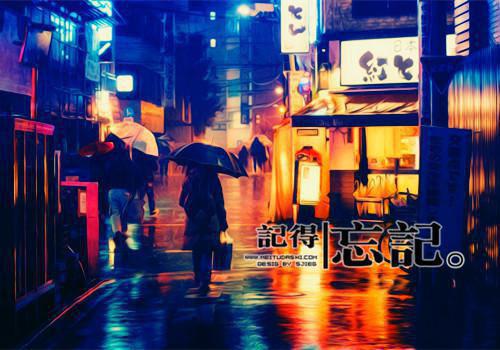
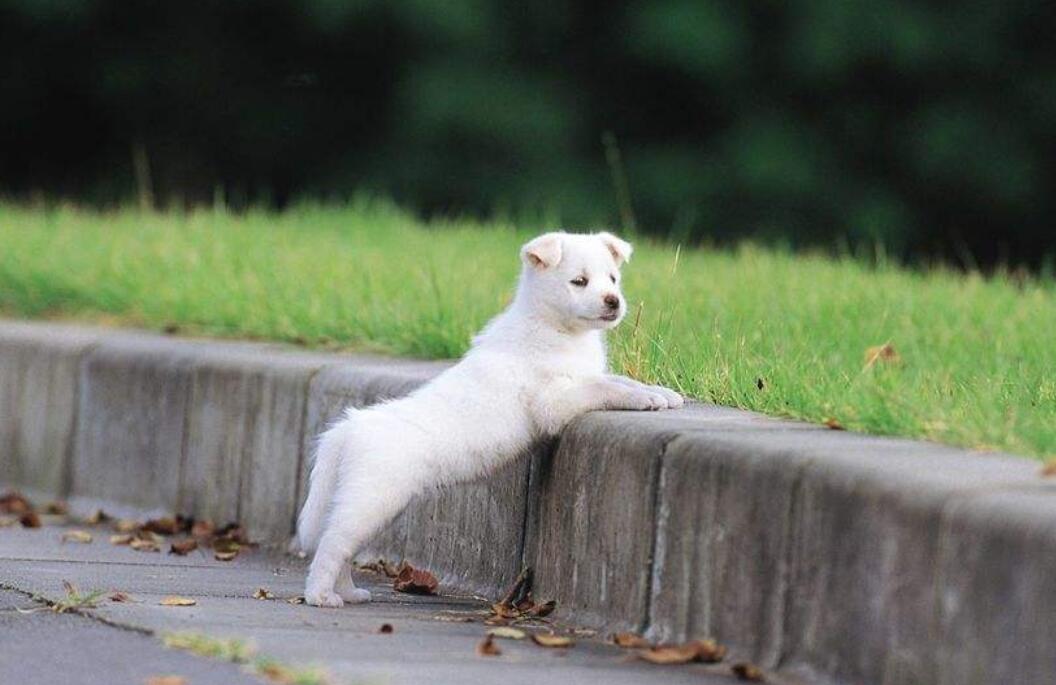
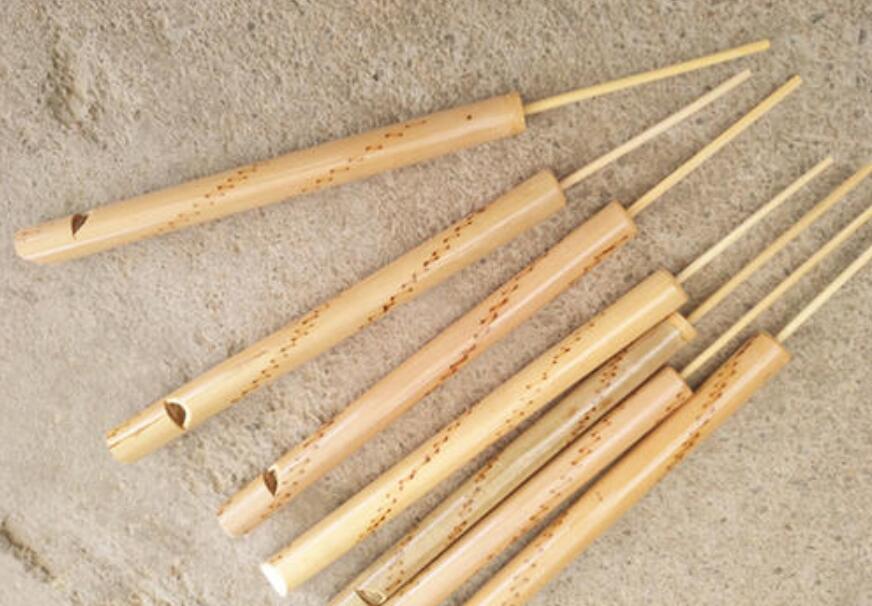
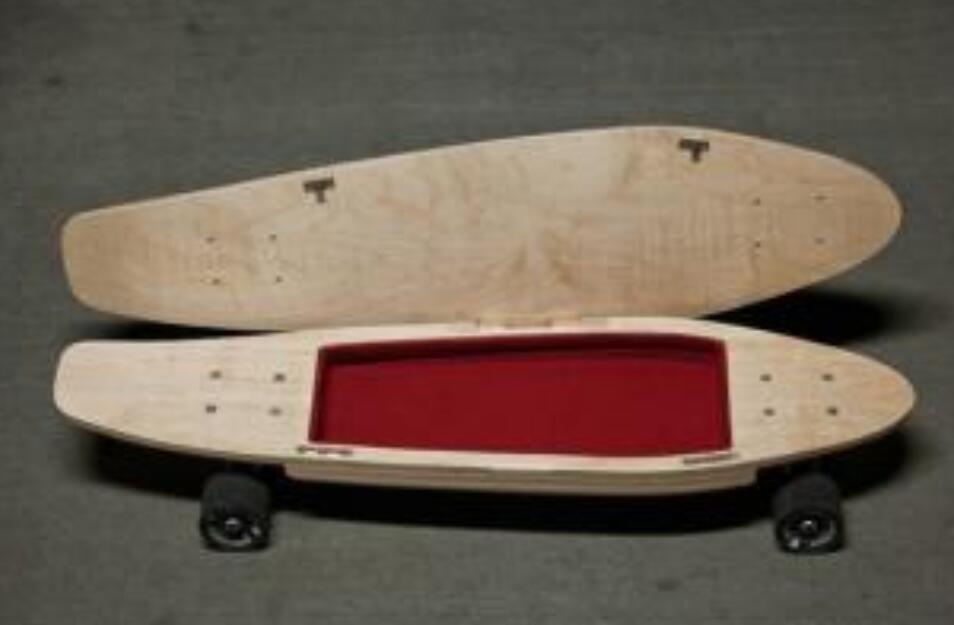



 名字十五个字实在太长我怕记不住
名字十五个字实在太长我怕记不住

